7 Tools for Building Emotional Intelligence in Children
School is back in session. Whether your “new normal” looks vastly different or just kinda different than your old normal, you’re probably feeling the crunch of kid schedules, activities and obligations. It’s easy to forget when you’re shuttling your child to practice and lessons, or just reminding them to do homework, that academics and well-roundedness take you only so far in life. In fact, research overwhelmingly suggests that building emotional intelligence in kids should be the priority for parents, teachers and caregivers.
What Is Emotional Intelligence?
The term ‘Emotional Intelligence’ was first coined in 1990 by two American university professors, John Mayer and Peter Salovey, who were looking for ways to scientifically measure the difference between people’s abilities in and around their emotions.
Why Is Emotional Intelligence Important For Kids?
Since then, study after study has shown that emotional intelligence is a far more powerful predictor of success than IQ or relevant experience. And not only is EQ a strong determinant for academic and professional success, it may likely account for a broad range of human behaviors, such as mental and physical health, life-satisfaction, well-being, and positive social interactions.
Though different personal qualities are included under the umbrella of emotional intelligence by different experts, it is generally agreed upon that for kids to truly be happy, healthy and high-performing, they need to have the following:
- self-confidence,
- empathy,
- self-control,
- perseverance, and
- optimism.
Thankfully, academia has heeded the research. More and more schools include curricula to develop emotional intelligence in kids, including social learning, mindfulness, and self-regulation. Hooray.
That said, no matter how profound an impact the education system plays on our children, “A child’s learning and socialization are most influenced by their family since the family is the child’s primary social group,” states the Children’s Bureau (a federal agency focused on improving the lives of children and families) in a 2017 article, “The Role of Family in Child Development."
That is to say, parents are, in most circumstances, the number one influence in a child’s life.
No pressure, right?
Building Emotional Intelligence In Your Child?
Here’s a list of fun, unique, low-tech tools that promote self-awareness, as well as foster connection and communication, setting your child on the road to a high EQ.
1. Home Sweet Homes Journal and Planner
| Created for children (age 4+) who live in two homes post parental divorce/separation, Home Sweet Homes is a physical yearly planner and journal combined into one that stays with the child. It is a child-centric approach allowing him/her to feel and maintain a sense of togetherness, comfort and connection with his/her parents. |

|
2. Manimo, Weighted Stuffed Animals
 |
Manimos can bring comfort and a feeling of calmness to kids! With 7 adorable models to choose from, these companions also promote attention and concentration and have been a favorite sensory tool for occupational therapists, psychologists, special education teachers, childhood professionals, teachers and parents! |
3. Time-in Toolkit
 |
Teach your child social and emotional skills like you would their ABC's! The Time-In Toolkit helps children process and regulate unpleasant feelings and big emotions. Create a calm, safe space through evidence-based games & activities by Generation Mindful. |
4. The Biggies Conversation Cards
|
The Biggies are a new research-based tool that parents, teachers and caregivers can use to build resilience in elementary-aged kids. By sparking conversation about social emotional concepts in fun and exciting ways, these cards develop emotional intelligence in kids, foster connection, and improve communication skills—all of which studies show contribute to health, happiness, and success! |
 |
5. Shashibo by Fun in Motion Toys
 |
Fidget toys provide movement and activity to stimulate the mind and body. Both entertaining and soothing, they promote relaxation, stress relief and can reduce anxiety in kids and adults alike. Shashibo is the #1 selling magnetic puzzle toy and a finalist for Toy of the Year 2 years in a row |
6. Playstories
|
Playstories offers personalized books across a wide range of topics including social emotional learning. With your child as the main character, he/she will be able to identify with different situations and emotions that arise. |
 |
7. Feeling Faces
 |
Knowing and naming emotions is an important skill for young children because it leads to emotional awareness, empathy, and social connection. Bright and soft, this is a perfect toy to acquaint toddlers and preschoolers with emotions! |
Thank you for reading. We love to hear your reactions! Please email us with your thoughts and comments!







